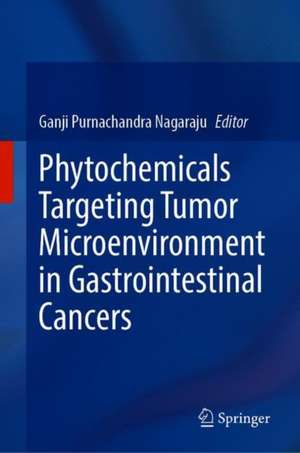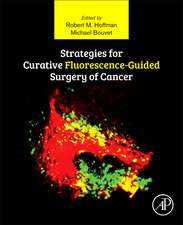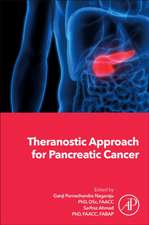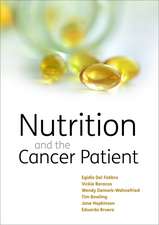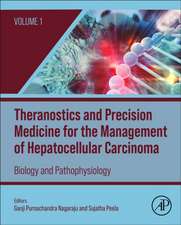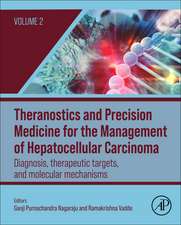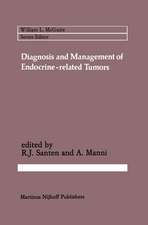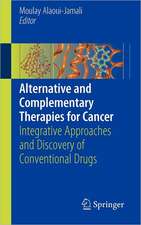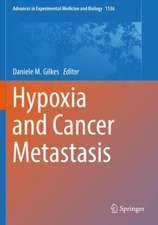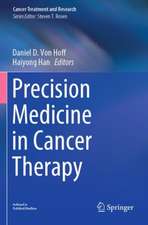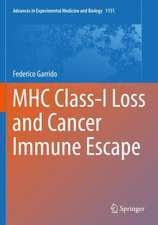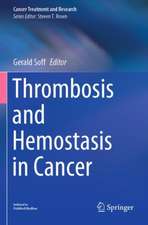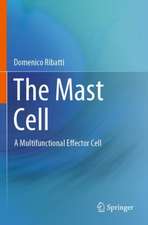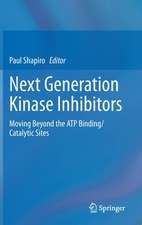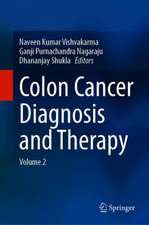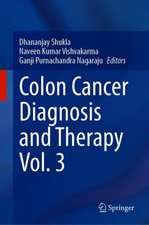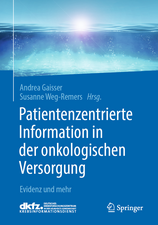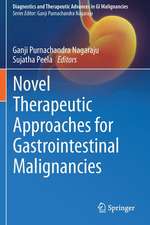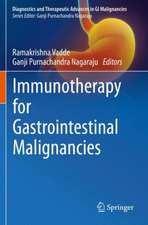Phytochemicals Targeting Tumor Microenvironment in Gastrointestinal Cancers
Editat de Ganji Purnachandra Nagarajuen Limba Engleză Hardback – 22 oct 2020
Preț: 1097.36 lei
Preț vechi: 1155.11 lei
-5% Nou
Puncte Express: 1646
Preț estimativ în valută:
209.99€ • 224.54$ • 175.08£
209.99€ • 224.54$ • 175.08£
Carte tipărită la comandă
Livrare economică 17 aprilie-01 mai
Preluare comenzi: 021 569.72.76
Specificații
ISBN-13: 9783030484040
ISBN-10: 3030484041
Ilustrații: XI, 340 p. 22 illus., 21 illus. in color.
Dimensiuni: 155 x 235 mm
Greutate: 0.49 kg
Ediția:1st ed. 2020
Editura: Springer International Publishing
Colecția Springer
Locul publicării:Cham, Switzerland
ISBN-10: 3030484041
Ilustrații: XI, 340 p. 22 illus., 21 illus. in color.
Dimensiuni: 155 x 235 mm
Greutate: 0.49 kg
Ediția:1st ed. 2020
Editura: Springer International Publishing
Colecția Springer
Locul publicării:Cham, Switzerland
Cuprins
Introduction
- Current dilemmas in the treatment of GI and liver cancers
- Chemoradioresistance in GI Cancers
- Tumor microenvironment against the action of chemotherapeutic drugs in GI cancer therapy
- Role of phytochemicals on growth and metastasis of GI cancers
- Combination of phytochemicals with chemotherapy on GI cancers cell death
- Phytochemicals plus checkpoint inhibitors in GI cancers
- Phytochemical analogues for the advancement of fourth generation therapeutic drugs for GI cancers
- Phytochemicals on exosomes in GI cancers
- The role of preventitive medicine and personalized care in overcoming cancer resistance and metastasis of GI cancers
- Cancer stem cells as therapeutic targets for GI and liver cancers
- Combination of phytochemicals with nanotechnology for targeting GI cancer therapy
Notă biografică
Dr. Nagaraju GP is a faculty member in the Department of Hematology and Medical Oncology at Emory University School of Medicine. Dr. Nagaraju obtained his MSc and PhD, both in biotechnology from Sri Venkateswara University in Tirupati, Andhra Pradesh, India. Dr. Nagaraju received his D.Sc. from Berhampur University in Berhampur, Odisha, India. Dr. Nagaraju's research focuses on translational research in gastrointestinal malignancies. He has published over 90 research papers in highly respected international journals and has presented more than 50 abstracts at various national and international conferences. He is author and editor of several books. Dr. Nagaraju is an editorial board member of several internationally recognized academic journals, and is an associate member of the Discovery and Developmental Therapeutics research program at Winship Cancer Institute. He is a member of the Association of Scientists of Indian Origin in America (ASIOA), the Society for Integrative and Comparative Biology (SICB), the Science Advisory Board, The RNA Society and the American Association of Cancer Research (AACR).
Textul de pe ultima copertă
Gastrointestinal (GI) malignancies account for a large portion of cancers worldwide. Although incidence of esophageal, gastric, and colorectal cancers has decreased in recent years, pancreatic and liver cancer have increased. The mainstay of GI cancer therapy is chemoradiation and surgery. Despite significant medical advancements, diagnosis and therapy for GI cancers remain challenging due to tumor cell resistance to chemoradiotherapy. The tumor’s increased cell signalling due to excessive transcription factor activation and increased stellate cell activity leads to collagen deposition formation of a dense stroma around the tumor, which prevents drugs from reaching the malignant cells. This leads to tumor chemoresistance.
To circumvent these difficulties, drug therapy targeting the tumor’s specific microenvironment and the additive anticancer effect of phytochemicals can allow for more effective treatment. This volume will be the first on the market on the topic of phytochemicals and their effect on the tumor microenvironment (TME). TME is an emerging area of research and the book will be a welcome introductory addition to the field.
Caracteristici
Focuses on the current broad range of treatment options and prospective treatments for GI cancers
Provides an understanding of the roadblocks of chemotherapy for newly-diagnosed patients and patients with metastatic GI cancers
Gives an overview on stroma, tumor microenvironment, stem cells, stellate cells, transcription factors, growth factors, and signaling pathways
Provides an understanding of the roadblocks of chemotherapy for newly-diagnosed patients and patients with metastatic GI cancers
Gives an overview on stroma, tumor microenvironment, stem cells, stellate cells, transcription factors, growth factors, and signaling pathways
